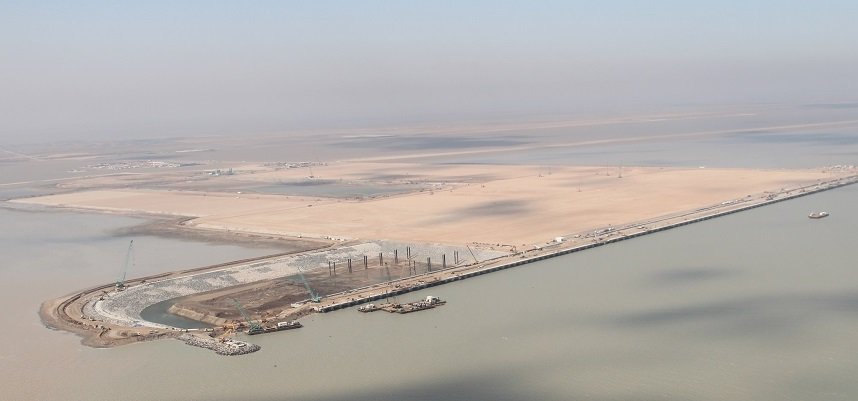Kuwait revives ‘made in China’ port in the race to develop the Persian Gulf
Work on the mega-project has resumed after a 10-year stalemate. A delegation from Beijing visited the country in recent days. A facility competing with the route planned by the Emirates and Turkey. The unresolved knot of maritime disputes with Iraq. At the weekend the Emir signed the appointment of Sheikh Sabah Khaled Al-Hamad Al-Sabah as Crown Prince.
Kuwait City (AsiaNews) - Kuwait, in collaboration with China, intends to relaunch - and complete - the project for a mega-port destined to become an important commercial centre for the entire northern area of the Persian Gulf.
A delegation of experts and senior officials from Beijing visited the emirate in recent days, meeting with local government representatives and construction managers for ‘in-depth technical and field discussions’ on the construction of the Mubarak Al-Kabeer port. According to the state agency, other partnership and development projects between the two countries are also under consideration.
The resumption of the project some 10 years after it was frozen - when it was only partially completed - is also linked to the ambitious plan of neighbouring Iraq, which is studying a major billion road and rail trade route. An ‘alternative to Suez’ plan, which excludes Kuwait and is aimed at developing trade in the region, carried out in collaboration with Qatar, the United Arab Emirates (Eau), and Turkey, which included an attack on the Kurds in order to realise it.
Hence the decision to restart development because, otherwise, there is a risk of ‘falling behind’ as Kristin Smith Diwan, an expert at the Arab Gulf States Institute in Washington, points out.
Kuwait is a key US ally in the Middle East and one of the richest countries in the world due to its abundant oil reserves. However, development goals have long been compromised by political dysfunction, most recently highlighted by the ruling emir's suspension of parliament.
The revival of the port plan could be a sign that the emir, Sheikh Mishaal Al-Ahmed Al-Sabah, intends to use the suspension to push ahead with projects blocked by disputes between legislators and ministers.
In this regard, at the weekend the Emir of Kuwait, Meshal Al-Ahmad Al-Jaber Al-Sabah, signed the appointment of Sheikh Sabah Khaled Al-Hamad Al-Sabah as Crown Prince. Born in 1953, he received a degree in political science from Kuwait University in 1977. He joined the Ministry of Foreign Affairs in 1978 as a diplomatic attaché and has a long career in the country's internal missions and institutions.
Meanwhile, on 28 May, the Prime Minister confirmed the leadership's intention to complete an ‘enormous’ amount of development projects. However, many obstacles and difficulties still remain: the Persian Gulf already has several important ports, including those of Dubai and Abu Dhabi. Moreover, the economies of Syria and Iran - initially the main beneficiaries served by the facility - have been battered by war and Western sanctions, limiting the benefits of any trade corridor.
Finally, Mubarak Al-Kabeer represents direct competition to the neighbouring Iraqi port of Faw, hence Baghdad's decision to cancel a maritime agreement giving Kuwait access via the Khor Abdullah waterway, triggering a dispute between the two countries.
‘Kuwait is focusing its strategic planning on the northern port and city project, which will encourage trade-led development and cement its leadership in the northern part of the Gulf, at least that is the expectation according to Diwan. But the goal will remain ‘impossible’ to achieve, she concludes, if the maritime dispute with Iraq remains unresolved.
28/09/2022 18:56
04/09/2008







.png)










